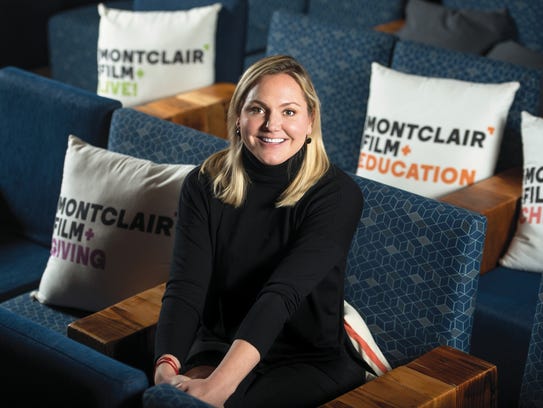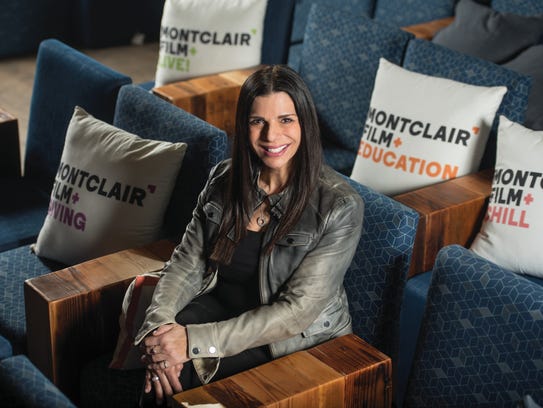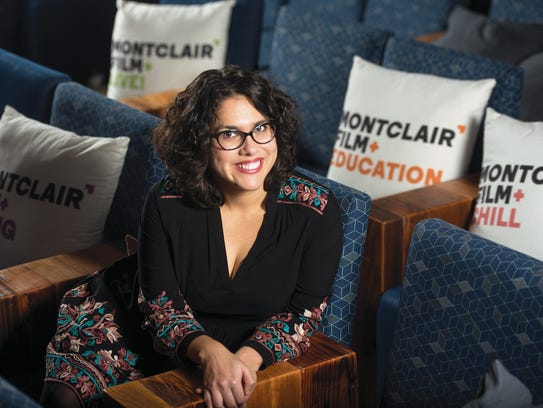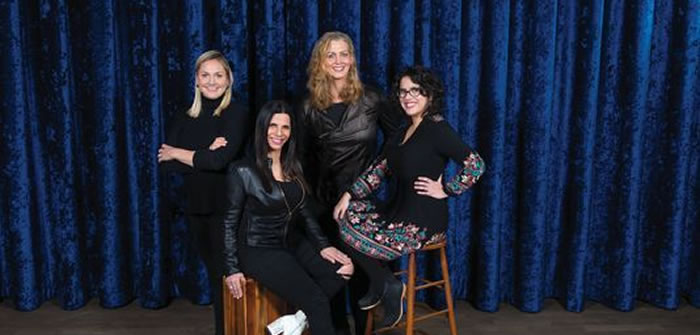The seventh annual Montclair Film Festival — so close we can smell the popcorn — includes discussions with actors Rachel Weisz, Jeff Daniels and Ethan Hawke, all moderated by Stephen Colbert; a discussion with actor Nick Offerman moderated by Patrick Wilson; post-screening Q&A’s with actress Claire Danes and director Paul Schrader; and a performance by larger-than-life creative hyphenate Taylor Mac.
Many of the films featured this year challenge viewers to consider what they have in common with individuals whose narratives differ, sometimes wildly, from their own. Documentaries include Far from the Tree, an adaptation of the bestselling book by Andrew Solomon about parents and children who struggle to accept each other, and The Gospel According to Andre, about the legendary Vogue editor Andre Talley, who grew up in the Jim Crow South and became a global tastemaker. Dan Reynolds, a founder of rock band Imagine Dragons, is the central figure in Believer, a documentary about his efforts to change the culture of the Mormon church in which he was raised. Solomon, Talley and Reynolds will be interviewed and answer questions after their respective film screenings.
For 11 days, Montclair will be a mecca for people who love the movies. But a number of the featured filmmakers won’t have a long commute, because they live here. Inspired by the (belated) recognition Hollywood has given this year to women in the industry, we decided to interview four local female filmmakers. They share with us how they got a foothold in their competitive line of work, and how they think women are changing the field.
Director/producer of the documentary Dark Money
PERFECT FOR A MULTI-TASKER
The daughter of a “camera geek,” Montana native Kimberly Reed grew up fascinated with film. “Starting in junior high, I convinced teachers to let me make films instead of writing papers,” she says. She majored in the humanities at the University of California-Berkeley, then earned a master’s degree in film at San Francisco State University. She wrote about the digital revolution for DV [Digital Video] Magazine, but found herself wishing she could work on the projects about which she was reporting.
Her first feature-length documentary was Prodigal Sons, about her return to Montana as a transgender woman. She produced and edited Paul Goodman Changed my Life,about the influential public intellectual, and produced The Death and Life of Marsha P.Johnson, about the early transgender pioneer. Dark Money will be released in theaters by PBS Distribution this summer, followed by a national broadcast on PBS’ documentary series POV this fall.
“It was born of frustration, when I heard about the 2010 Citizens United decision,” she says. “It basically said that corporations are people and that money is speech, and if you can’t constrain the First Amendment rights of corporations, then we have to allow them to give unlimited money to political campaigns. You could see how power and influence would be consolidated into fewer and richer hands, and that’s exactly what happened.”
Reed knew that a story about money and politics could sound dry and technical, so she personalized her film by covering the attempts of her high school friend, Montana’s attorney general, to challenge and overturn the case, as well as the investigative efforts of Montanan reporter John S. Adam. The film followed multiple election cycles over six years, which “allowed us to tell the story of how this shell game works,” she says. “The money that goes into campaigns isn’t just unlimited. It’s anonymous, and it comes from overseas.” Now a Newark resident, she credits her status as a fourth-generation Montanan with getting the access needed to make her movie.

Writer of the short film Boy Boy Girl Girl
FIRST THERE WAS THE WRITTEN WORD
Connecticut native Addie Morfoot came to the film world via journalism. After graduating from the University of Wisconsin-Madison with degrees in communications and English, she moved to Los Angeles, “thinking that I would go to the beach and marry a surfer,” she jokes. An internship at Variety, for whom she still writes, led to fun times “at the outskirts of the red carpet scene.” It also led to her interviewing her future husband, Ross Kauffman, who co-wrote and directed Born into Brothels. She moved to New York to be with him, worked full-time at Variety and traveled the globe with Kauffman as he showed his films in far-flung destinations such as Japan, India and Africa.

Acted in and wrote story for the short film Swiped Right
FIRST FASHION, THEN FILM
If Lydia Fiore hadn’t done so well as a fashion executive, her film career might have blossomed earlier. Originally from Lackawanna, N.Y., she attended the Fashion Institute of Technology and launched into a career working with plus-size clothing. “I did a big push in my 30’s to see if I was going to leave my day job and act, and that didn’t happen,” she says. A couple years ago, though, after her company was bought out and her contract wasn’t renewed, she decided to give acting another try. She took classes, auditioned for parts, and got them.
“There’s a place called the Actor’s Green Room in the city, and I would go to screenings to see what other people were creating,” she says. When she saw the work of short film creator Dana Schoenfeld, she immediately wanted to collaborate with her. “I thought, ‘I want to make films about subjects for women my age,’” says Fiore. She co-wrote and starred in a short called High Deny — “about pills, Prosecco and politics, and a loveable person a dysfunctional family does an intervention on.” Then came Swiped Right.

Editor, RBG
BRINGING SOCIAL ISSUES TO THE SCREEN
Montclair resident Carla Gutierrez was introduced to video-making through a female professor at Williams College, where she majored in math and studio arts. A native of Peru, she wanted a career that connected the arts with social issues, and documentaries fit that description.
After a post-graduation job in advertising proved unfulfilling, she attended Stanford University’s documentary film school, and became one of 16 students in her program. She soon recognized that she had an affinity for editing. “I used to kill what filmmakers call their ‘babies,’” she says, referring to the beloved segments creators are loath to cut. “And being bilingual has been a great asset.”

